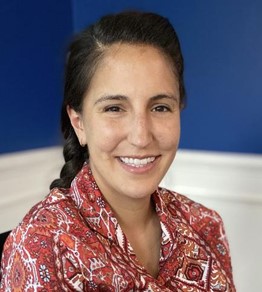Standards & Ethics CommitteeCommittee DescriptionThe purpose of the Standards & Ethics Committee is to set forth ethical standards for practicing dance/movement therapists, and to clarify what ethical practice for dance/movement therapists is as questions arise. In carrying out its responsibilities, the committee aims to protect and safeguard the experiences of Dance/Movement Therapy students, professional providers and service users by addressing all situations of harm and malpractice brought to their attention. The Committee strives to support Dance/Movement Therapy clinicians, students and protect clients as they seek to achieve the transformations through DMT. The Standards and Ethics Committee values & aspires to embody the following as it carries out its functions;
S&E Committee Member InformationMaximum number of members: Chair plus 8 members Number of seats open for professional members: 2 Duration of term:
The following is expected from members of the S&E committee:
Benefits of joining the committee include:
S&E Application ProcessThe minimum requirement to apply to the committee is:
Process of ApplyingPlease email your most recent CV and a 250 word statement of intent to [email protected]. Committee Chair
Douglas Cornman, MA, BC-DMT serves as the Director of Island Services for Maine Seacoast Mission in Northeast Harbor, Maine. He is crew aboard the MV Sunbeam V, a 94-ton, 74 ft steel-hulled boat that cruises the coast of Maine providing holistic healthcare services, educational programming, and hospitality to the residents of the fifteen islands that sustain year-round fishing communities. His work with islanders focuses primarily on emotional and spiritual healthcare, substance abuse, and coping with the challenges associated with living in remote and isolated rural island communities. Prior to his work with the Seacoast Mission, Douglas lived in Philadelphia, PA and New Haven, CT and worked with children, adolescents, and adults living with Autism Spectrum Disorder in outpatient mental health, school, and residential settings. Douglas earned his dance therapy degree from Allegheny University of the Allied Health Sciences (formerly Hahnemann; currently Drexel) and his undergraduate degree in Theater Performance from Messiah College in Grantham, PA. He is a former company member of Trapezius Ariel Dance, Philadelphia and The New Haven Ballet. He currently dances with Motion Collective, an improvisational dance company based on Mount Desert Island and teaches modern, ballet, and improv technique. Committee Members
Selena Coburn BC-DMT, LMHC, LCPC is a mental health and dance/movement therapist in Great Falls, Montana, an adjunct professor at Lesley University, and an Associate Professor at Great Falls College Montana State University. She is a descendant of Blackfeet, Klamath, Cree, and Pitt River tribes. She earned her BFA in Dance from SUNY Purchase College in Purchase, NY. Selena's dance/movement therapy training includes the 92nd Street Y in Manhattan, NY, and Lesley University in Cambridge, Massachusetts. As a board-certified dance/movement therapist, she believes in the importance of decolonizing dance as therapy and culturally inclusive processing as the primary therapeutic principle. Selena has worked with adolescents in the residential treatment center setting and experienced the power of incorporating cultural healing elements in helping adolescents navigate social, emotional, physical, and relational developmental changes. Coburn has presented on Blackfeet cultural dances, Native American perspectives, and participated in panel discussions locally, regionally, and internationally. Selena founded the Native American Affinity Group as part of the Multicultural Diversity Committee of the ADTA and received the Leader of Tomorrow Award in 2020. She has previously served on the Texas Chapter board. She is currently serving as the ADTA Standards and Ethics Chair. Selena is ready and enthusiastic to shepherd future students.
XaHara A. MeGod, M.A., R-DMT, G-RMT, CPT (she/they) is an entrepreneurial therapist and owner of Wys Wellness, an Embodied Reiki healing and certification practice. They currently teach at Pratt Institute in New York where she also serves as a research developer for Pratt’s Center for Teaching & Learning and is the BIPOC Affinity Group Coordinator for the Creative Arts Therapy Department. MeGod was awarded the Lenore Hervey Research Scholarship and received an ADTA scholarship along with two conference spotlights for her nationally published “Embodied Ethical Decision-Making” model. Her work can be read in the American Journal of Dance Therapy as published in 2020, and seen in the development of the updated policies and procedures for the Standards & Ethics Committee of the ADTA for navigating culturally embedded, ethical dilemmas. XaHara A. MeGod embodies cultural healing through ethical practices and incorporates her work into her developing research on transgenerational trauma at Wys Wellness.
Jennifer Whitley, M.S., BC-DMT, LCAT, CMA (she/hers) is a board-certified dance/movement therapist (DMT) and LCAT in NY. She is trained in: Ways of Seeing, Level II Reiki, Laban Movement Analysis, Meaning-Center Psychotherapy, EMDR and Authentic Movement. Jenn works at Memorial Sloan Kettering Cancer Center (MSKCC) in NYC focusing on medical DMT in pediatric oncology (MSK Kids), offers dance wellness classes, and leads workshops for adult patients through Integrative Medicine. She provides DMT for special needs students in the school setting and works in private practice at Dancing Dialogue. Jenn is on the Board of the Andréa Rizzo Foundation and the ADTA Standards and Ethics Committee. Lauren Milburn, BC-DMT, LMHC (she/they) practices as a psychedelic dance/movement therapist currently providing ketamine-assisted therapy and researching psilocybin-assisted therapy. Lauren completed her Dance/Movement Therapy and Counseling Masters at Columbia College Chicago, and gained clinical experience supporting survivors of trauma and individuals living with conditions across the spectrum of mental health concerns. Their approach is grounded in relational/cultural theory, pleasure activism, harm reduction, and disability justice principles. In sessions, Lauren invites deep listening to the body’s innate wisdom, resourcing the nervous system’s resilience to generate self-compassion, untangle harmful internalized patterns, and embrace creative and contemplative meaning-making practices. It is Lauren’s hope that by engaging healing processes held within relational webs of care, we can build the capacity to transform social conditions into sanctuary spaces and promote life-affirming reciprocity.
Pamela Faith Lerman, M.Ed., LCAT, LMHC, BC-DMT has been in the field of dance/movement therapy since 1987. She joined the Standards and Ethics committee in 2023, and is the Hudson Valley/Capital District Liason to the NYSADTA. Ms. Lerman has had a lifelong commitment to working on diversity, equity and inclusion issues, and is a member of the National Sisterhood of Salaam Shalom group which unites Jewish and Muslim women. Ms. Lerman is an active member of the ADTA Spirituality & Religion Affinity group, and co-leads the Unity and Diversity Shabbat at the National ADTA conference. Currently in private practice, Ms. Lerman was the Creative Arts Therapist for Ellis Hospital in Schenectady, NY from 1998-2021, & taught Intro to Dance Therapy for Russell Sage in Troy, NY from 2007-2022. A graduate of Temple University’s Dance Education program, (1985), Ms. Lerman earned her DMT certification (1987) via the Alternate route, at Hahnemann University (now Drexel), & Naropa Institute, with Board Certification completed in 1990.
Meg Chang, EdD, BC-DMT, LCAT, NCC is a board-certified dance/movement therapist (BC-DMT), a Licensed Creative Arts Therapist (LCAT) in New York State, and a National Certified Counselor (NCC). In the ADTA, she has served as National Treasurer and both a founding member of the Multicultural and Diversity Committee and chair of its Asian and Asian Pacific Islander Desi American Affinity Group. In 2019 she was honored with ADTA’s Lifetime Achievement Award. Currently a visiting core faculty member in the Dance/Movement Therapy Program at Lesley University, her clinical career has encompassed decades of private and group work with hospitalized psychiatric patients, housebound elderly, UN peacekeepers in Kosovo, and support groups for domestic violence survivors. Her extensive writing and editing credits for the AJDT Journal and elsewhere include the field’s first foundational articles on racial and cultural identity, as well as on the use of dance therapy for domestic violence trauma. She is a Certified Mindfulness-Based Stress Reduction teacher (MBSR) and trainer, and a Certified Kinetic Awareness ™ Teacher. Her doctorate was earned at Columbia University Teachers College and dissertation research was conducted in South Korea and Taiwan, with a focus on East Asian dance/movement therapy pedagogy. File an Ethical Situation |







